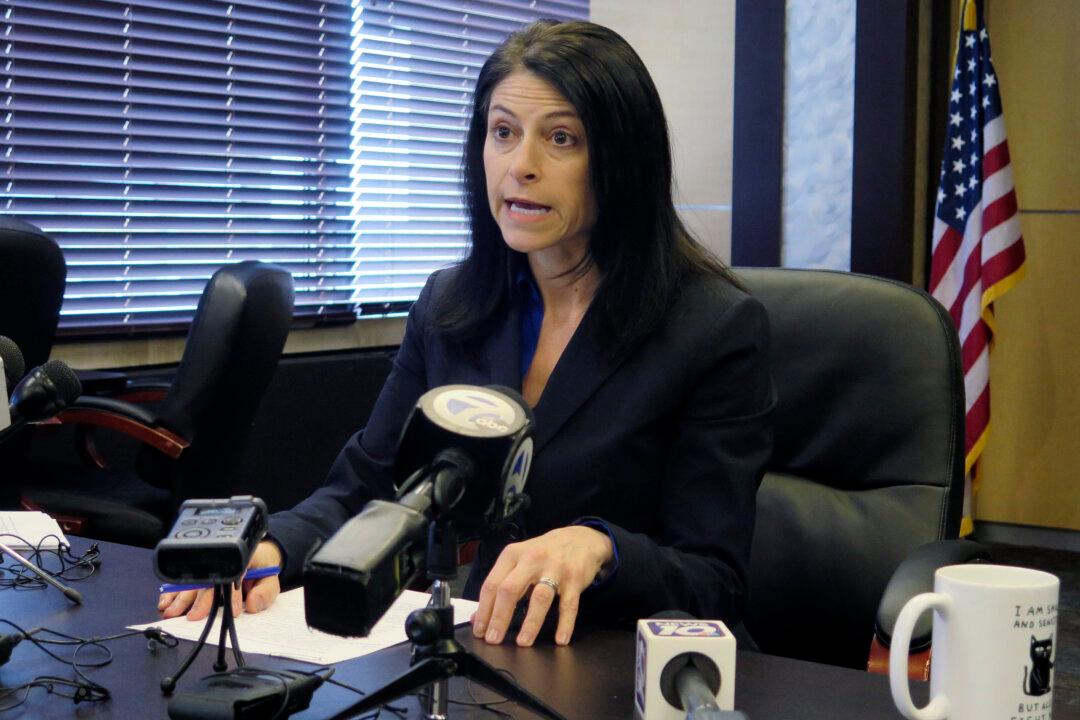Michigan Attorney General Dana Nessel has announced charges against 16 people who signed certificates claiming that President Donald Trump won Michigan in the 2020 election.
Each of the 16 individuals faces multiple felony charges that in total carry a maximum penalty of 85 years in prison, in what Nessel’s office said was a “false electors scheme” in the wake of the 2020 presidential election.





